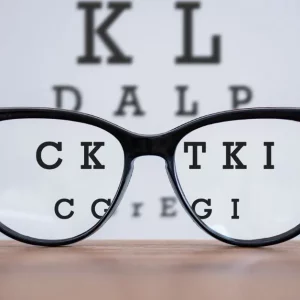Although consistently practicing cognitive exercises can promote recovery, playing games for brain injury patients is a fun and engaging way to encourage cognitive improvements. While different games require different sets of cognitive skills, many of the best games for brain injury patients involve memory, attention, and problem-solving skills.
Unlike traditional cognitive exercises, brain games usually keep individuals more engaged. This means that survivors are often more motivated to regularly practice developing their cognitive skills through games, whereas they may be more tempted to skip a day of cognitive exercises. Because of this, brain games can be excellent tools to help enhance the recovery process.
How Can Games Enhance Brain Injury Recovery?
Just as every brain injury is unique, each individual experiences the brain injury recovery process differently. Survivors can experience a wide range of secondary effects following a brain injury, depending on the location and severity of damage.
Pursuing rehabilitation can help individuals overcome these secondary effects. This is because therapy is one of the best ways to optimize neuroplasticity, the process through which the brain can adapt and heal.
Neuroplasticity is activated through repetitive tasks. Therefore, when individuals consistently practice a specific exercise, pathways in the brain associated with that exercise will be created and/or strengthened. This process allows functions that have been impaired or lost after a brain injury to be restored.
However, while practicing exercises repetitively can be a great way to activate neuroplasticity, it isn’t the only way. Repetitive practice of other tasks, such as specific games or activities, can also stimulate the creation and strengthening of neural pathways through neuroplasticity. Therefore, playing games can be an engaging and effective way to promote recovery after brain injury.
Finding the best games for brain injury patients can be challenging, as different games target distinct sets of skills. While many games involve both physical and cognitive components, the games presented in this article are mainly focused on improving cognition.
Nine Effective Games for Brain Injury Patients
The most effective games for brain injury patients vary depending on the individual’s ability level and which skills are being targeted. While the games below were not designed exclusively for traumatic brain injury recovery, they can each activate a specific set of cognitive skills.
This list is organized by difficulty, from easiest to most complex. Some individuals may need to start at the beginning of the list, while others may be able to start further down. The goal is to find a game that is difficult, but not so challenging that it becomes frustrating.
1. Go Fish (and Other Simple Card Games)
Card games like “Go Fish” are ideal for severe brain injury survivors who are working to relearn skills like memory, pattern recognition, and attention. Simple card games may require some strategy, but likely not so much that it will become frustrating.
For more of a challenge: Consider trying more complex card games, such as Solitaire or Hearts, as skills improve.
2. UNO
UNO is another simple game for brain injury survivors. Skills such as color and number recognition are required play. Planning skills can also help individuals choose whether to play reverse, skip, or wild cards, while attention skills are necessary to play and keep track of the number of cards left in each player’s hand.
For more of a challenge: Once UNO is mastered, try playing games such as Skip-Bo and Phase 10, which require similar but more advanced skills.
3. Scattergories
Word games, such as Scattergories, can be great for improving organization, recall and word-finding abilities. The goal of Scattergories is to name as many items as possible that fall into a specific category within two minutes. This can be an excellent game to boost expressive language skills among individuals with aphasia and other language disorders after brain injury.
Potential modifications: Individuals who struggle with the speed component of Scattergories may consider simply using the cards to quiz themselves, without worrying about running out of time.
4. Scrabble
Scrabble is another game that can boost word-finding skills. This game is a little more advanced, because not only are players limited by the tiles in their hand, but each word played also has to include at least one letter already on the board.
This exercises several cognitive skills at once, including:
- memory to think of and remember a word until it is able to be played
- strategy to find the best word for the most points
- problem-solving to build a word from available letters
- mental flexibility to adapt if another player does something unexpected
Scabble is also a great way to exercise fine motor skills when grasping and placing tiles, as well as visual scanning skills to visualize different places to play on the board. Since Scrabble can address all of these functions, it is among the best games for traumatic brain injury patients.
For more of a challenge: Other similar word games include Boggle and Bananagrams, which have less strategy involved, but require faster skills. Again, forgoing the use of a timer can allow individuals to begin building the skills needed for the game until their speed improves.
Want 25 pages of TBI recovery exercises in PDF form? Click here to download our free TBI Rehab Exercise ebook now (link opens a pop up for uninterrupted reading)
5. Jenga
This classic party game is ideal for practicing fine motor skills and hand-eye coordination. Cognitive skills like attention and planning are also essential to determine which blocks can be removed without toppling the tower.
Potential modifications: Giant Jenga can be a great alternative for individuals who have trouble moving the smaller blocks until their fine motor skills improve.
6. Concentration
Played with any standard deck of cards, the goal of Concentration is to find matching pairs of cards among an entire deck spread in a face-down grid. As players take turns flipping over two cards at a time, they have to try to remember where each card lies in order to make a match with it in the future. This can make Concentration especially beneficial for people trying to improve short-term memory skills.
Potential modifications: While playing with an entire deck of cards may be too challenging at first, individuals can start by playing with only 2 suits or using only aces through fives.
7. Sudoku
Playing Sudoku can be an excellent way to practice short-term memory, organization, and problem-solving skills. Each row, column, and square in a Sudoku grid has to be filled out with the numbers 1-9 without any repeats. Examining numbers on the grid can also challenge visual scanning skills.
Potential modifications: Sudoku puzzles range from easy to advanced, allowing individuals of varying abilities to find an appropriately challenging puzzle. Other paper and pencil games, such as crossword puzzles, can use similar skills.
8. Monopoly
The game of Monopoly can allow brain injury survivors to practice life skills, such as mental math and money management. Buying and trading properties throughout the game also requires cognitive skills, such as planning, judgement and problem-solving.
Potential modifications: Monopoly can be a very long game, requiring players to sustain attention for over an hour. Shortening the game by setting a time limit or taking breaks can help prevent cognitive fatigue.
9. Chess
The game of Chess can challenge a number of cognitive skills, including memory, planning, judgement and reasoning. Because it is played with only two players, chess can be a good beginning strategy game.
For more of a challenge: Other strategy games, such as Chinese Checkers and Azul, require similar skills, but may involve more mental flexibility if played with more players.
Further Considerations
Although not all of the games above will be appropriate for every brain injury survivor, this list provides a good starting point for individuals looking for different ways to stimulate recovery. Many of these games also have a junior or kid’s version, allowing survivors to simplify the game while continuing to develop related skills.
More advanced games, such as Risk, Ticket to Ride, or Settlers of Catan, can also be beneficial for brain injury survivors looking to fine-tune their cognitive skills. Learning to play a new or unfamiliar game can also pose a cognitive challenge for survivors.
While classic games such as those above can boost neuroplasticity and recovery, some individuals prefer more targeted games focused on improving specific functions that were lost or impaired after brain injury. A number of gamified rehabilitative programs and apps have been developed specifically for this purpose.
For example, the CT Speech and Cognitive Therapy App allows users to choose which skills they’d like to work on and provides optimally challenging tasks in an appealing, game-like format. Using gamified rehabilitative programs combines the benefits of increased engagement with the targeted specificity of therapy to enhance recovery outcomes.
Want to learn more about the CT Speech and Cognitive Therapy App? Get Started Here.
(Link opens a pop-up for uninterrupted reading.)
Games can be an excellent tool for boosting cognitive functions after a brain injury. While the best games for brain injury patients can vary depending on the person and their abilities, this article gives a great starting point for individuals hoping to enhance their recovery in a fun, engaging way.










